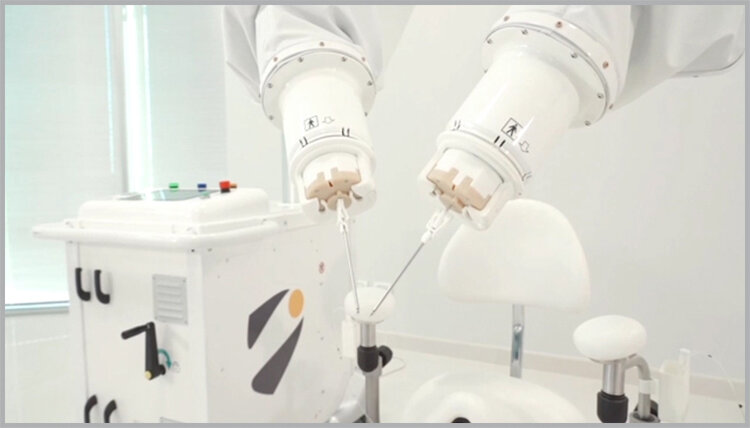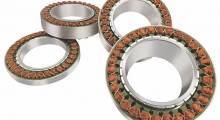Pisa, Italy-based Medical Microinstruments, or MMI, has launched a set of instruments it said were designed to better address the challenges of microsurgery. The products are part of the company’s Supermicro NanoWrist line and are designed to be used with the Symani Surgical System, the company’s two-armed robotic surgical machine.
The tips of the new instruments are half the width of MMI's standard microinstruments with a tapered design optimized to connect vessels under one millimeter in diameter and delicately hold 10-0 to 12-0 sutures.
Precision in microsurgery is important as it involves suturing arteries, veins, ducts, and nerves.These procedures require high visual magnification, specialized instruments, and advanced fine motor skills, the company noted.
MMI said the Symani System has allowed surgeons to have better surgical precision when manually suturing extremely small vessels. The new Supermicro NanoWrist instruments build on that work and allow for even greater precision in smaller spaces, according to the company.
Real-world use case
Dr. Simon Enzinger, a surgeon at the Department of Oral and Maxillofacial Surgery at the University Hospital Salzburg, used the supermicro needle holder and dilator instruments to perform a partial glossectomy procedure. The surgery involved raising a patient’s lateral arm free flap to replace a large section of the patient's tongue that had become cancerous.
To return blood flow to the transferred tissue, Dr. Enzinger needed to connect the branch of the radial collateral artery to a side brand of the superior thyroid artery that was only 0.8mm in diameter and in a difficult location to access.
“We've already seen the benefits of Symani and the NanoWrist instruments in improving dexterity and control,” said Enzinger. “The new supermicro instrument tips are even smaller and more refined, making it significantly easier to precisely connect vessels under one millimeter in diameter. I believe this will expand the ability to use perforator-to-perforator flaps, which makes free-flap surgeries shorter and less invasive.”
The news comes two months after Medical Microinstruments raised $75 million in Series B financing. The company is backed by international medtech investors including Andera Partners, BioStar, Deerfield Management, Fountain Healthcare Partners, Panakès Partners, RA Capital, and Sambatech.
The global market for surgical robots was valued at $3.6 billion in 2021, according to Grand View Research. It is expected grow at an annual growth rate (CAGR) of 19.3% from 2022 to 2030.
Article topics
Email Sign Up














